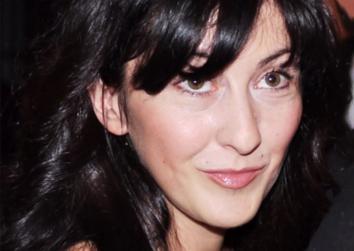Before the rise of the startup economy, immigrants who arrived to the U.S. would often begin their lives from scratch. Educational degrees or prestigious positions wouldn’t translate, and without a proper grasp of the language, or a social and professional network, they’d have to reinvent themselves. But in the digital economy, all it takes is one brilliant idea to be successful. The idea doesn’t even have to be that unique. In fact, the characters in Lara Vapnyar’s novel Still Here marvel at how “the most obvious apps were the ones that were really taking off.” All it would take, really, is one stupid concept.
In Still Here, Vapnyar explores the weight and repercussions of the startup economy’s promise, and the particular way it both helps and hinders immigrants’ lives. The four main characters know each other from Russia. Regina is married to Bob, an American who developed “a supersuccessful start-up designing new mobile apps” called DigiSly. Regina helped Vadik get a position at Bob’s company, “and now he too made some serious bucks.” Sergey, a programmer who can’t seem to keep a job, is married to Vica, who works as an ultrasound technician. They both live in Staten Island in a house they can’t afford. They have a 5-year-old son, Eric, and are obsessed with their idea for the next big app: Virtual Grave.
Sergey and Vica are the characters most susceptible to the burden of the startup economy’s promise. Everywhere around them, “Other people were getting rich off apps too. Ordinary people like them, immigrants like them.” On the way to Vadik’s housewarming party, the couple brainstorms how they’ll discreetly pitch Sergey’s app idea to Bob. Sergey conceived of Virtual Grave as a way to communicate with the dead after they’re gone via a virtual archive of texts, emails, and voice recordings. This technological ephemera would form “a linguistic portrait of that person, which was equal to restoring his or her essence or, in other words, his or her soul.” But, in practice, none of the characters can agree on the details, and even Vica thinks the app only has potential if she can rework the concept entirely. Virtual Grave is at once absurd, brilliant, practical, morbid, and bound to fail.
“You immigrants think of apps as this new gold rush,” Bob tells Sergey, and Sergey agrees: “What is so wrong about that?” Vapnyar illustrates how, when one idea can so vastly change your life, the attendant hope and expectation can also corrupt it. What starts as Sergey’s pet project, a way to preserve life after death, ends up interfering with his actual life in devious ways.
As the novel progresses, Virtual Grave allows characters to fantasize about possibilities for a new future. Yet the idea fractures Vica and Sergey’s marriage: Vica wants her husband to hold a stable job, but Sergey only wants to commit himself entirely to his vision. When they separate, Vica secretly tries to develop her own app idea, Virtual Will, which would allow users more direct control over their social media presence after death. Meanwhile, Sergey, having moved in with Vadik to work full time on his app, gets into a virtual affair with Vadik’s ex-girlfriend over Skype. When Vadik finds out, it temporarily ends their friendship — one of the only true connections Sergey has left, despite 14 years in his new country.

Stepan Pachikov
Regina and Vadik both upgrade their lives by virtue of the digital economy, yet they also experience their own forms of disillusionment. Regina lives with Bob in a luxury Tribeca apartment. It’s a life completely removed from everything she knew back in Russia, one she fell into by meeting her husband in a chance encounter while visiting Vica and Sergey in New York. A former acclaimed literary translator, Regina is lost without connection to her work. Instead, she spends her days on Eat’N’Watch, an app that combines Netflix and Seamless, synchronizing your takeout orders with your TV preferences. She feels her brain melting, but her newfound social status alienates her from her old friends; her concerns sound obnoxious to Vica when she tries to confide in her. For Regina, “The worst thing about Vica and Sergey was that they were constantly trying to push yet another of their stupid app ideas on Bob.” The freedom, boredom, and unsettling alienation that comes from living in a foreign country with a foreign husband silently suffocate her.
The digital economy levels the playing field for immigrants, offering a financial and emotional solution removed from time, patience, or grit. Yet it also creates in these characters a sense of weightlessness, even meaninglessness. “Doesn’t it feel like we’re entering the afterlife?” Sergey asks Vica on the plane to New York. Immigrant life is already transient, the type of death that follows when you set your previous life aside.“ When wealth can come so quickly and unpredictably, conditions for existence appear even more fleeting than before, subject to transform upon a chance encounter or sudden inspiration.
Startups don’t just appeal to immigrants, yet Vapnyar shows how the economy of ideas, isolated from prior social standing, is particularly alluring to them. She also illustrates the absurdity of this appeal. After Sergey and Vica separate, they’re trapped less by the constraints of their social status than by the endless slog of developing their app (if it will ever come). As these characters slowly realize that America is nothing they thought it would be, Vapnyar underscores the gap between how easy it appears to cash out on the startup economy and how painfully difficult it proves.
—
Still Here by Lara Vapnyar. Hogarth.
See all the pieces in the Slate Book Review.
